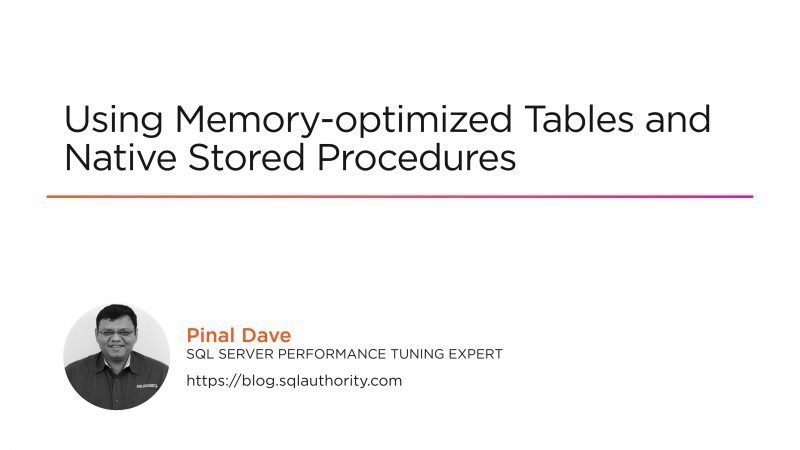I am happy to announce that I have just published my recent SQL Server Performance Tuning video course on Pluralsight on the topic – Using Memory optimized Tables and Native Stored Procedures.
The In-Memory OLTP feature adds a new memory-optimized RDBMS engine and a native compiled stored procedure. This new addition adds higher concurrency to the SQL Server and enables it to process a much higher amount of the workload than before. In this course, we will learn about how to get started with the memory-optimized tables and build a use case around its effectiveness. Additionally, we will also understand how the efficiency of the stored procedure is increased when we use Native Stored Procedure along with Memory Optimized Table.
Table of Content
- Course Overview
- Creating Memory-Optimized Tables
- Optimizing Performance of In-Memory Tables
- Creating Natively Compiled Stored Procedures
- Collecting Execution Statistics for Natively Compiled Stored Procedure
- Summary
You can visit the course page over here and further expand each topic to understand what is covered in each of the topics.
Convenience Your Boss for Memory Optimized
My day job is SQL Server Performance Tuning for various organizations and I always look for the opportunity to implement Memory-Optimized Tables and Native Compiled Stored Procedures at my client. However, the biggest push back, I receive from my client is on the following three topics:
- Durability of Data
- Resource Consumption
- Performance of Queries
I have addressed all the three topics in the course. Every module of the course has an interesting demonstration which describes each of the topics in the detail.
In the final module of Summary, I have included a short demonstration, which I use with my clients to convince them to start using In-Memory OLTP and Native Stored Procedures.
Watch The Course for FREE
The course is available on Pluralsight and if you have a subscription, you can watch my course. However, if you do not have a subscription for Pluralsight, you can immediately get a FREE subscription by signing up here.
Reference: Pinal Dave (https://blog.sqlauthority.com)






